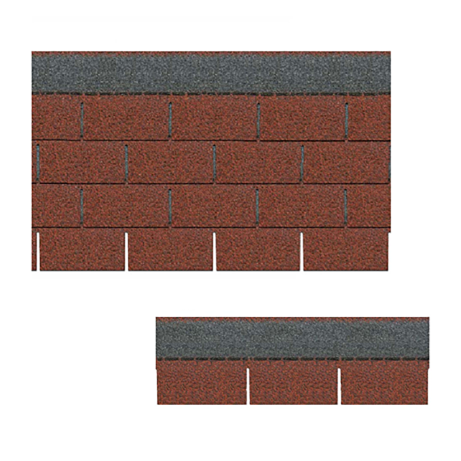
Nov . 05, 2024 18:44 Back to list
granular modified bitumen roofing
Granular Modified Bitumen Roofing An Overview
Granular modified bitumen roofing systems have gained significant popularity in both commercial and residential applications due to their durability, versatility, and weather resistance. These roofing products combine traditional asphalt with polymer modifiers, enhancing their performance and longevity. In this article, we will explore the characteristics, benefits, installation, and maintenance of granular modified bitumen roofing systems.
1. Understanding Granular Modified Bitumen
Granular modified bitumen roofing consists of a base layer of asphalt that is modified with polymers such as atactic polypropylene (APP) or styrene-butadiene-styrene (SBS). These polymers improve the roofing's flexibility, elasticity, and overall strength. The surface of the membrane is covered with granules, which can be made of natural stone or ceramic materials, providing protection from UV radiation, mechanical damage, and weathering.
2. Benefits of Granular Modified Bitumen Roofing
One of the primary advantages of granular modified bitumen roofing is its exceptional durability. The modification process results in a roofing solution that can endure extreme temperatures, ranging from scorching heat to freezing cold. This ability to withstand thermal fluctuations reduces the risk of cracking and splitting, ensuring a longer lifespan for the roof.
Moreover, the granules serve as a protective layer, offering resistance to ultraviolet degradation. This means that the roofing material maintains its integrity and color for a prolonged period, reducing the need for frequent repairs or replacements. Enhanced weather resistance also makes granular modified bitumen roofing highly effective in areas prone to heavy rainfall, snow, or hail, making it an ideal choice for various climates.
granular modified bitumen roofing

Another notable benefit is the ease of installation. Granular modified bitumen membranes can be applied by torching, cold adhesive, or self-adhesive methods, providing flexibility for contractors and ensuring a robust seal against moisture infiltration. Additionally, it accommodates various roof shapes and styles, allowing for creative architectural designs while maintaining functional performance.
3. Installation Process
The installation of granular modified bitumen roofing requires careful planning and execution. First, the existing roof surface must be inspected and prepared to ensure it is clean, dry, and free of debris. Once the surface is ready, the membrane is rolled out and either torched, adhered, or sealed to achieve optimal bonding. Proper overlaps and seams are crucial to prevent water penetration, and granules are often spread on the surface to enhance aesthetics and protection.
4. Maintenance Considerations
While granular modified bitumen roofs are low-maintenance, regular inspections are advisable. Homeowners and building managers should check for any signs of damage, such as granule loss, cracks, or ponding water. Ensuring that drains and gutters are clear will prevent water buildup, which can compromise the roof's integrity. Routine cleaning and maintenance can extend the life of the roofing system and enhance its performance.
Conclusion
Granular modified bitumen roofing stands out as a reliable and versatile solution for a variety of building types. With its impressive durability, weather resistance, and ease of installation, it caters to the needs of both builders and homeowners. Its maintenance-friendly nature further solidifies its position as a preferred roofing option in the construction industry. When considering a roofing solution, granular modified bitumen should certainly be on the shortlist for anyone looking for quality and longevity.
-
Small Clay Roof Tiles for Durable & Stylish Roofing Red & Custom Options Available
NewsJun.24,2025
-
Lifetime Roof Shingles – Durable Roofing Solutions for Decades
NewsJun.10,2025
-
Top Roofing Shingles Types Compare Different Types of Architectural Roofing Shingles for Your Home
NewsJun.10,2025
-
Affordable Asphalt Shingle Roll Durable & Easy Flat Roof Solution
NewsJun.09,2025
-
Metal Asphalt Look Roofing Durable Shingle-Style Options
NewsJun.09,2025
-
Premium Clay Valley Roof Tiles Durable & Eco-Friendly
NewsJun.09,2025







